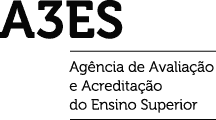- Pesquisar search
ATENÇÃO: Esta página foi traduzida automaticamente pelo Google Translate. Isto pode ter consequências inesperadas no conteúdo apresentado e, portanto, não nos responsabilizamos pelo resultado dessa tradução automática.
ATTENTION: this page has been automatically translated by Google Translate. This can have unexpected consequences and, therefore, we do not take responsibility for the result of that automatic translation.
O Doutoramento em Estudos Internacionais organiza-se numa perspetiva interdisciplinar, debruçando-se não apenas sobre a dimensão política e económica dos fenómenos internacionais, mas englobando também temas transversais como os ativismos sociais e a cidadania, o desenvolvimento e a sustentabilidade.
Em estreita conexão com o Centro de Estudos Internacionais do ISCTE (CEI-Iscte), o programa articula-se em torno de três eixos fundamentais que correspondem a outras tantas linhas de investigação do CEI-Iscte: História Internacional, Segurança e Instituições; Ativismo, Cidadania e Direitos Humanos; Sustentabilidade e Desenvolvimento.
Com uma componente curricular relativamente leve, o doutoramento assume-se como um programa que aposta fortemente nas atividades de acompanhamento e tutoria, previstas para o segundo e terceiro ano, na integração dos doutorandos nas linhas de investigação e nas atividades do CEI-Iscte e na constante interação entre os estudantes dos vários anos do curso, com o objetivo de criar uma verdadeira “learning community”.
Em termos curriculares, prevê-se que ao longo do primeiro ano, os estudantes frequentem uma unidade curricular seminarial intitulada “Seminário em Estudos Internacionais”, na qual estarão espelhadas as três grandes áreas temáticas nas quais o programa se estrutura. Existirá também uma unidade curricular anual de ensino de métodos de investigação e uma outra de preparação/construção do projeto de doutoramento, que os estudantes terão que apresentar e defender publicamente no final do segundo semestre. Os doutorandos serão também fortemente incentivados em participar nas inúmeras conferências, colóquios e seminários organizados pela Unidade de Investigação que acolhe o programa doutoral.
Por fim, saliente-se que as unidades curriculares são lecionadas em inglês, pelo que entre o seu público-alvo se encontram não apenas estudantes portugueses, mas também oriundos de outros países europeus e de fora da Europa, procurando satisfazer a crescente procura de formação avançada no Iscte por parte de estudantes internacionais.
Encontra-se aberto o período de candidaturas a 2 Bolsas de Mérito e a 2 Bolsas para pagamento da propina anual, destinadas a estudantes do Doutoramento em Estudos Internacionais.
A Bolsa de Mérito, com um valor mensal correspondente ao montante de referência para bolsas nacionais de doutoramento atribuídas pela FCT, destina-se a novos estudantes e a estudantes inscritos no 1º ano, no ano letivo de 2024- 2025.
A Bolsa de Isenção de Propina destina-se a novos estudantes que tenham concluído o mestrado no Iscte nos dois anos letivos imediatamente anteriores ao início do doutoramento (incluindo os que tenham concluído, ou que venham a concluir em 2024 – 2025).
São elegíveis para candidatura os estudantes já matriculados, bem como os que venham a submeter candidatura ao Doutoramento na 6.ª fase, a decorrer entre 26 de junho e 27 de agosto de 2025.
Consulte mais informação aqui

2026/2027
| Unidades curriculares | Semestre | ECTS |
|---|---|---|
| Métodos de Investigação Aplicados | 1 | 18.0 |
| Seminário de Projeto em Estudos Internacionais | 1 | 24.0 |
| Seminário em Estudos Internacionais | 1 | 18.0 |
Optativas recomendadas
| Unidades curriculares | Semestre | ECTS |
|---|---|---|
| Tese em Estudos Internacionais Tese em Estudos Internacionais | 1 | 180.0 |
Optativas recomendadas
| Unidades curriculares | Semestre | ECTS |
|---|
Optativas recomendadas
| Unidades curriculares | Semestre | ECTS |
|---|
Optativas recomendadas
2025/2026
Podem candidatar-se ao Doutoramento em Estudos Internacionais:
Aos candidatos que estejam sujeitos à obtenção de visto, recomenda-se a formalização da candidatura nas primeiras fases.
Recomenda-se ainda que, caso tenham problemas na conclusão do processo de candidatura, contactem o Centro de Estudos Internacionais do Iscte através do e-mail: doutoramentos.cei@iscte-iul.pt
Além dos requisitos indicados no ponto anterior, o processo de candidatura inclui a submissão dos seguintes documentos: